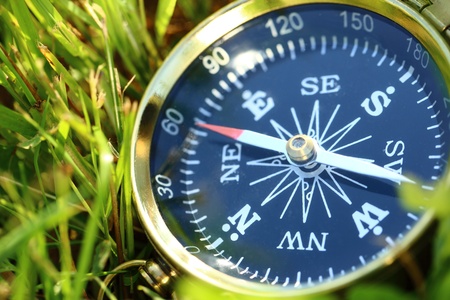Introduction to British Womens Magazine Astrology Columns
There is a gentle magic woven through the pages of British women’s magazines, one that has endured for generations: the astrology column. Nestled between beauty tips and heartfelt confessions, these celestial snippets have become a cherished ritual for readers across the United Kingdom. Rooted in a longstanding tradition that traces back to the early twentieth century, astrology columns offer more than just predictions—they provide comfort, hope, and a sense of connection to something greater than ourselves. Their enduring charm lies in their ability to blend whimsical star signs with everyday concerns, all while echoing the uniquely British wit and warmth that characterise these publications. Over cups of tea or on the morning commute, readers still turn eagerly to their horoscopes, seeking guidance or simply a touch of cosmic reassurance amidst life’s daily whirl. In this article, we will journey through the history and social influence of astrology columns in British women’s magazines, exploring why these star-guided words remain so beloved by readers both young and old.
2. Historical Evolution of Astrology Columns
Astrology columns in British women’s magazines have a fascinating and gentle history, woven into the fabric of popular culture. Their journey began in earnest during the early 20th century, but it was after World War II that star sign columns truly blossomed, capturing the imaginations of readers seeking comfort and guidance amidst societal upheaval. These columns offered more than just predictions—they provided solace and a sense of belonging during times of uncertainty.
The Post-War Bloom
In post-war Britain, astrology found fertile ground as magazines sought ways to engage and support their readership. Women, navigating new roles and freedoms, turned to horoscopes for reassurance and inspiration. Editorial styles shifted from formal and didactic tones to warmer, conversational voices, mirroring the changing spirit of the age. The columns became less about fate and more about personal empowerment—inviting readers to reflect on their inner worlds while sipping tea at the kitchen table.
Editorial Styles Across Decades
| Decade | Editorial Style | Focus of Astrology Columns |
|---|---|---|
| 1940s–1950s | Authoritative & Reassuring | Guidance through social change and post-war recovery |
| 1960s–1970s | Youthful & Playful | Personal freedom, romance, and self-discovery |
| 1980s–1990s | Conversational & Relatable | Lifestyle integration, career advice, holistic wellbeing |
| 2000s–Present | Inclusive & Empowering | Mental health awareness, diversity, intersectionality |
The Gentle Influence of Star Signs in British Culture
Through each era, astrology columns have gently adapted to shifting cultural tides. They evolved from simple fortune-telling snippets to thoughtful reflections on relationships, ambition, and wellbeing—always attuned to the hopes and anxieties of their predominantly female audience. In doing so, they became a trusted companion in the pages of beloved British magazines, quietly shaping both editorial direction and collective imagination.

3. The Language of the Stars: Cultural Nuances and Local Flavour
Astrology columns in British women’s magazines are not just about planetary alignments—they are a vibrant tapestry woven with the threads of British identity and everyday life. Unlike their American or continental counterparts, these horoscopes delight in a distinctly homegrown voice, laced with wit, charm, and that unmistakable sense of British irony. This uniquely local approach transforms what could be a generic prediction into a warm, familiar exchange—like having a chat over a cuppa with an old friend who just happens to know your star sign.
Chatty Tones and Witty Banter
The language used in these columns is often conversational, peppered with playful turns of phrase and gentle humour. British astrologers know their readers crave both guidance and entertainment; thus, horoscopes might advise a Taurus to “keep calm and carry on” or tease a Leo for being “the life and soul of the party—even if it’s just you, the cat, and an M&S ready meal.” Such references create an immediate sense of belonging, grounding cosmic wisdom in the everyday rituals and jokes of British life.
Homegrown Idioms and References
British horoscopes revel in local idioms—“don’t get your knickers in a twist,” “Bob’s your uncle,” or “feeling under the weather”—imbuing predictions with warmth and relatability. Columnists often nod to national pastimes (from watching the footie to indulging in Bake Off) or seasonal quirks (“Mercury retrograde might make your commute as tricky as the Northern Line at rush hour”). These little touches offer readers more than guidance; they foster connection through shared cultural touchstones.
A Reflection of Britishness
This linguistic style does more than amuse; it reflects deeper values within British society: resilience, community, self-deprecating humour, and an appreciation for understatement. In reading their daily or weekly star signs, women find not only insights about love or career but also gentle reminders of what it means to navigate life with a stiff upper lip—and perhaps a cheeky wink from the universe. In this way, astrology columns become a mirror for both individual hopes and collective experience, all filtered through the distinctive lens of British culture.
4. Everywoman’s Guide: Social Influence and Emotional Resonance
Astrology columns in British women’s magazines have long transcended the boundaries of mere entertainment. Instead, they have become a gentle companion, offering solace, subtle direction, and a shared language for navigating daily life’s ebbs and flows. From the post-war optimism of the 1950s to today’s digital age, these columns have woven themselves into the fabric of everyday experience for countless readers.
The Power of Gentle Guidance
Unlike stern advice or prescriptive self-help trends, astrology columns have provided a softer approach—one rooted in suggestion rather than instruction. By inviting women to reflect on their star signs and the cosmic rhythms at play, horoscopes offer a space for introspection and agency. The language is inclusive, often acknowledging challenges while highlighting opportunities for growth. For many British women, reading their weekly or monthly horoscope has become a cherished ritual, offering reassurance that their feelings are valid and their futures hopeful.
Emotional Comfort Across Generations
Astrology’s enduring appeal lies in its capacity to create emotional resonance. During uncertain times—be it social upheaval, personal transitions, or collective anxieties—horoscopes provide comfort through familiar words and the promise of cyclical renewal. A Taurus might be reminded of her innate strength; a Pisces may feel seen in her sensitivity. This emotional embrace, subtle yet powerful, is part of why astrology columns remain relevant across generations.
Community and Connection
One often-overlooked aspect is the sense of community fostered by these columns. In hair salons, workplaces, and family kitchens across Britain, conversations about Mercury retrograde or Venus in Leo spark laughter and camaraderie. Astrology becomes a common ground—a way to share hopes, frustrations, and dreams within a supportive cultural context.
Key Social Influences of Astrology Columns
| Aspect | Influence on Readers | Cultural Impact |
|---|---|---|
| Gentle Guidance | Encourages self-reflection without judgment | Nurtures personal agency and resilience |
| Emotional Comfort | Offers validation during uncertainty or stress | Fosters mental well-being and hopefulness |
| Community Building | Sparks conversation among friends and families | Cultivates shared cultural rituals and identity |
| Intergenerational Appeal | Binds mothers, daughters, and grandmothers through tradition | Sustains continuity within changing social landscapes |
The astrology column’s enduring presence in British women’s magazines is thus more than just whimsical fun—it is a testament to the quiet power of words to guide, comfort, and connect. Through astrological wisdom filtered with warmth and care, generations of British women have found both meaning and belonging.
5. Contemporary Shifts: Astrology in the Modern Media Landscape
Astrology columns in British women’s magazines have always mirrored the cultural tides of their time, but in recent years, the landscape has undergone a remarkable transformation. The digital revolution, with its surge of social media platforms and online communities, has reimagined how horoscopes are written, shared, and consumed across the UK. No longer confined to the back pages of glossy print issues, astrology now thrives on Instagram feeds, podcast playlists, and even TikTok videos—each platform offering a fresh way for Britons to engage with the stars.
Digital Platforms: Horoscopes Go Viral
The shift from print to digital has made astrology more accessible than ever before. Once the domain of quietly flicking to your star sign in a magazine queue at Tesco or WHSmith, today’s readers can receive personalised daily readings delivered straight to their smartphones. Popular apps and websites tailored for a British audience blend humour, wit, and relatability—think references to rainy Mondays or the joys of Bank Holiday lie-ins—making horoscopes feel intimately woven into everyday life. Online forums and Facebook groups also allow readers to share experiences and debate predictions, nurturing a community spirit that echoes the friendly banter found in traditional magazine letters pages.
Celebrity Astrologers: New Voices for a New Era
A new generation of astrologers has emerged as household names in the UK media scene. Figures like Jessica Adams and Russell Grant have leveraged digital platforms and television appearances to become trusted guides through both cosmic drama and daily dilemmas. Their advice is often peppered with warmth, gentle humour, and distinctly British turns of phrase, endearing them to modern readers who seek both reassurance and entertainment. This celebrity influence lends astrology columns a renewed sense of credibility and vibrancy, bridging generations while adapting to changing tastes.
Evolving Readerships: Inclusivity & Individuality
Perhaps most importantly, today’s astrology columns reflect an evolving readership—one that values inclusivity and self-expression. Many contemporary British magazines now offer horoscopes that recognise LGBTQ+ identities and diverse cultural backgrounds. Instead of generic forecasts, there is a growing emphasis on personal growth, mindfulness, and emotional wellbeing. Readers are encouraged not only to see themselves in their sun sign but also to explore their moon signs or rising signs—an invitation to embrace the complexity of who they are.
This modern approach fosters an environment where astrology serves as both gentle companion and insightful guide—a space where traditional wisdom meets twenty-first-century sensibilities. In this way, astrology continues to hold its cherished place within British women’s magazines while gracefully evolving alongside its devoted audience.
6. Critique and Continued Allure
Astrology columns in British women’s magazines have never been free from scrutiny. Scepticism towards horoscopes has always found a voice, especially within the rational and scientifically-minded segments of British society. Critics often point out the generalised nature of star sign predictions, questioning their validity and highlighting the lack of empirical evidence supporting astrology. In fact, British humour has sometimes played on this disbelief, with television programmes and columnists gently poking fun at the idea that planetary alignments could dictate one’s romantic prospects or career twists.
Yet, despite such critiques, the allure of horoscopes endures. There is a unique warmth in turning the page to find a few lines seemingly crafted just for you—a gentle forecast offering reassurance or sparking curiosity about what the week ahead may hold. For many readers, horoscopes are not so much about literal belief as they are about moments of reflection, comfort and connection. They provide a language for hope and possibility; an accessible ritual shared across generations of women leafing through glossy pages over tea or on the commute.
The continued popularity of astrology columns can also be seen as a response to the unpredictability of modern life. In uncertain times, these columns offer not only escapism but also a sense of order—inviting readers to locate themselves within a larger cosmic rhythm. Whether embraced with tongue-in-cheek amusement or quiet sincerity, horoscopes invite both introspection and light-hearted conversation between friends.
Ultimately, while scepticism remains part of the cultural conversation, it sits comfortably alongside enduring fascination. The British approach—characterised by a blend of wry detachment and affectionate curiosity—ensures that astrology columns remain a cherished feature in women’s magazines, bridging generations with their gentle mix of whimsy and wisdom.
7. Conclusion: The Enduring Magic of the Zodiac
There is something undeniably gentle and quietly enchanting about the ongoing presence of astrology columns in British women’s magazines. Despite the changing tides of culture, technology, and social discourse, these weekly or monthly horoscopes continue to hold a special place in readers’ hearts. Perhaps it is their ability to offer a moment of pause—an invitation to reflect, hope, and dream—in the midst of life’s bustle. Rooted in a tradition that has graced magazine pages for over a century, astrology columns serve as soft companions on the journey through womanhood in Britain.
Astrology, with its poetic language and celestial metaphors, grants us permission to gently explore our inner worlds. In reading about our star signs—whether you’re a steadfast Taurus or a whimsical Pisces—we find not only entertainment but also an intimate space for self-reflection. These columns encourage us to ask tender questions about our desires, relationships, and futures, all while wrapped in the comforting familiarity of British wit and cultural nuance. It is no wonder that so many readers treasure the ritual of turning to their horoscope with a cup of tea in hand, seeking solace or inspiration from the stars above.
Ultimately, astrology columns endure because they weave together community, comfort, and curiosity. They remind us that we are part of something bigger—a cosmic tapestry that connects us across generations and backgrounds. As British women’s magazines evolve alongside society, the zodiac remains a subtle yet powerful thread: ever-present, ever-inviting us to believe in magic and possibility.


